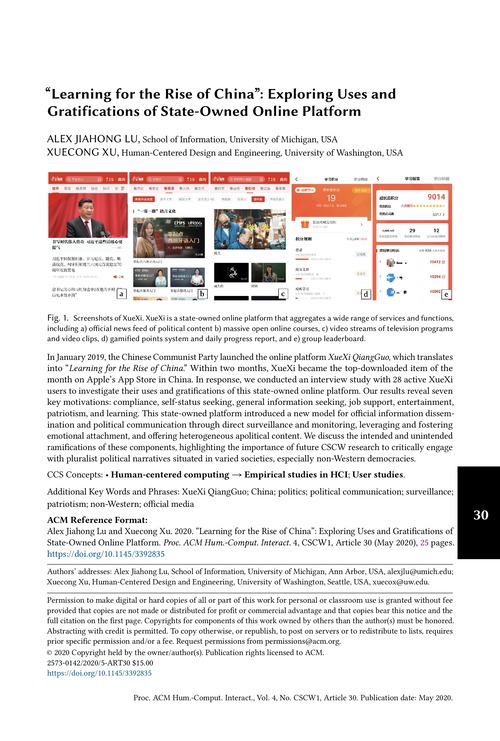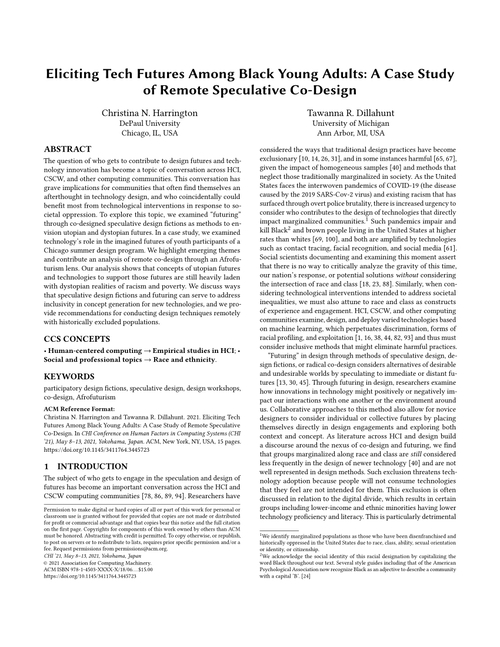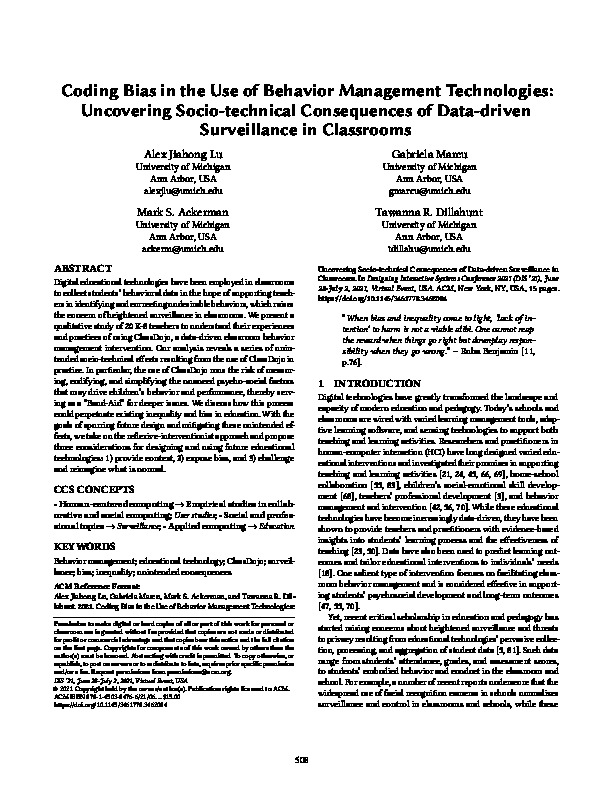
Peace, Justice, and Strong Institutions
Inform efforts to promote peaceful and inclusive societies for sustainable development, provide access to justice for all, and build effective, accountable, and inclusive institutions at all levels
Related work
-
Learning for the Rise of China’: Exploring Uses and Gratifications of State-Owned Online Platform
Lu, A. and Xu, X. (2020)
| In Proc. of ACM'20 Conference on Human Computer Interaction CSCW 1 | In January 2019, the Chinese Communist Party launched the online platform XueXi QiangGuo, which translates into “Learning for the Rise of China.” Within two months, XueXi became the top-downloaded item of the month on Apple’s App Store in China. In response, we conducted an interview study with 28 active XueXi users to investigate their uses and gratifications of this state-owned online platform. Our results reveal seven key motivations: compliance, self-status seeking, general information seeking, job support, entertainment, patriotism, and learning. This state-owned platform introduced a new model for official information dissemination and political communication through direct surveillance and monitoring, leveraging and fostering emotional attachment, and offering heterogeneous apolitical content. We discuss the intended and unintended ramifications of these components, highlighting the importance of future CSCW research to critically engage with pluralist political narratives situated in varied societies, especially non-Western democracies. -
Eliciting Tech Futures Among Black Young Adults: A Case Study of Remote Speculative Co-Design
Harrington, C. N. and Dillahunt, T. R. (2021)
| In Proc. of CHI'21 Conference on Human Factors in Computing Systems | The question of who gets to contribute to design futures and technology innovation has become a topic of conversation across HCI, CSCW, and other computing communities. This conversation has grave implications for communities that often fnd themselves an afterthought in technology design, and who coincidentally could beneft most from technological interventions in response to societal oppression. To explore this topic, we examined “futuring” through co-designed speculative design fctions as methods to envision utopian and dystopian futures. In a case study, we examined technology’s role in the imagined futures of youth participants of a Chicago summer design program. We highlight emerging themes and contribute an analysis of remote co-design through an Afrofuturism lens. Our analysis shows that concepts of utopian futures and technologies to support those futures are still heavily laden with dystopian realities of racism and poverty. We discuss ways that speculative design fctions and futuring can serve to address inclusivity in concept generation for new technologies, and we provide recommendations for conducting design techniques remotely with historically excluded populations. -
Coding Bias in the Use of Behavior Management Technologies: Uncovering Socio-technical Consequences of Data-driven Surveillance in Classrooms
Lu, A. J., Marcu, G., Ackerman, M. S., and Dillahunt, T. R. (2021)
*Honorable Mention* | In Proc. of the CHI '21 Conference on Human Factors in Computing Systems | Digital educational technologies have been employed in classrooms to collect students’ behavioral data in the hope of supporting teachers in identifying and correcting undesirable behaviors, which raises the concern of heightened surveillance in classrooms. We present a qualitative study of 20 K-8 teachers to understand their experiences and practices of using ClassDojo, a data-driven classroom behavior management intervention. Our analysis reveals a series of unintended socio-technical effects resulting from the use of ClassDojo in practice. In particular, the use of ClassDojo runs the risk of measuring, codifying, and simplifying the nuanced psycho-social factors that may drive children’s behavior and performance, thereby serving as a “Band-Aid” for deeper issues. We discuss how this process could perpetuate existing inequality and bias in education. With the goals of spurring future design and mitigating these unintended effects, we take on the reflexive-interventionist approach and propose three considerations for designing and using future educational technologies: 1) provide context, 2) expose bias, and 3) challenge and reimagine what is normal


